The Fulcrum of Courage, Part 8
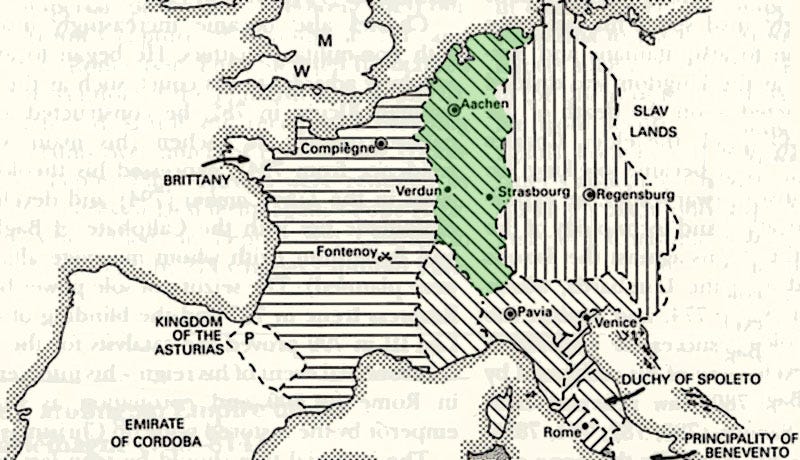
In 965, King Lothair of France ruled lands that once belonged to Otto the Great’s father, the Duke of Saxony.
He faced several threats from inside his kingdom, making it prudent for him to maintain diplomatic ties with the emperor. To secure them, he married Otto the Great’s niece, Princess Emma of Italy.
The royal couple had a silken way of accepting situations and advancing together. They had complementary resources. They shared an intense desire for power.
Most of all, they enjoyed conspiring together over a glass of wine.
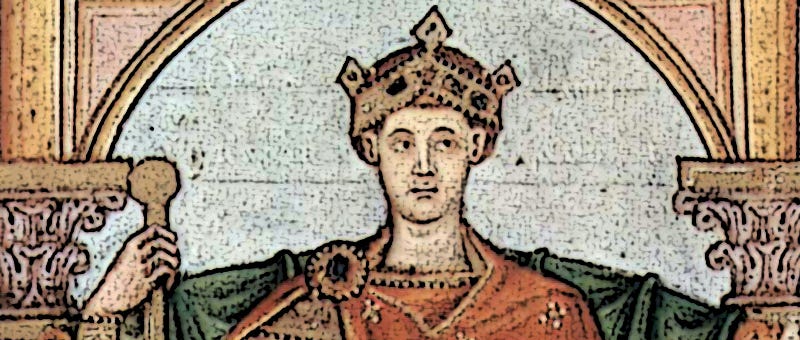
In October of 967, Otto the Great found a patch of wild borage near Verona with his son. They joked and rough-housed for a few minutes. Then they weighed their options and decided the emperor’s army should march south.
When they got to Rome, the emperor crushed a rebellion.
To the west, Lothair was consolidating power and fiercely defending his political independence.
To the east, the Byzantine emperor opposed Otto the Great’s claim to the throne of the Holy Roman Empire and was preventing him from retaking the rest of Italy.
Byzantium was the more pressing concern.
Otto I wanted to secure a treaty by arranging a marriage between his son and a Byzantine princess, but none were suitable according to Byzantine law. He also needed to guarantee his son would succeed him to secure a diplomatic agreement.
On Christmas Day 967, 12-year-old Otto II was coronated co-emperor of the Holy Roman Empire, ensuring his succession.
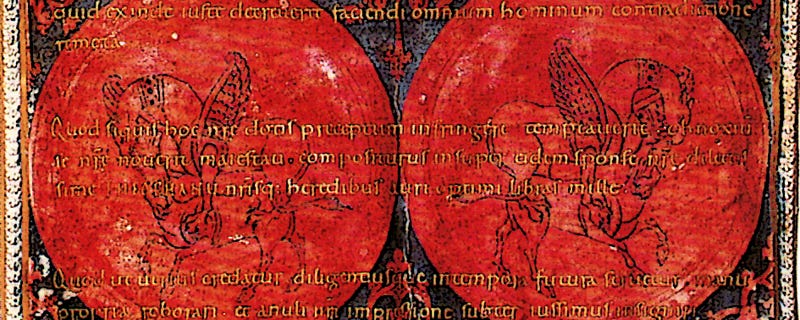
Otto the Great was betrayed by a previous son.
No real authority was granted to Otto II. Instead, the boy was mostly confined to studying in Lombardy. He only saw his father on formal occasions.
In 969, the Byzantine emperor was murdered by his nephew, John I Tzimiskes, who did have a princess of suitable age – his niece.
The diplomatic situation was complex.
Saxon nobles wanted Otto II to marry one of their daughters and threatened to destabilize the northwest region of the empire if he did not. Selecting any of them would sew division in Italy.
The Marriage Charter of Princess Theophanu was written in Latin using real gold. The words are overlayed on a painting with line-drawings of predators, both real and mythical, killing prey on blood red circles.
It took nearly 3 years to conclude negotiations.
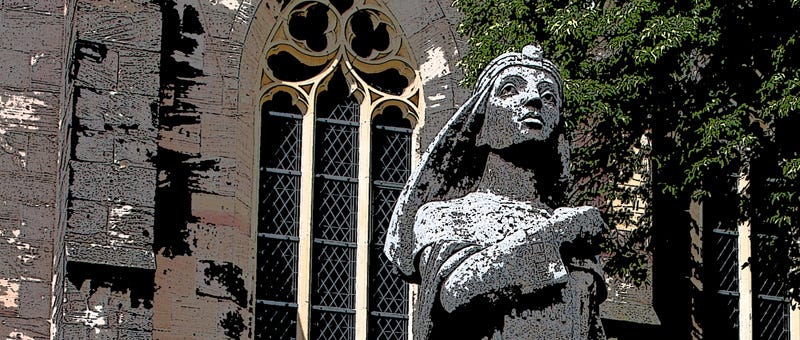
Gerbert of Aurillac met Otto II in 970.
Somehow, he managed to integrate Otto II’s interests and hobbies into their tutoring sessions. The boy always left feeling understood and more enlightened.
Otto II learned the wisdom in making moves that benefit everyone as well as himself from Gerbert. He learned about duty from his father.
In the spring of 972, John I Tzimiskes and Otto the Great agreed to joint sovereignty over southern Italy.
Otto II and Theophanu were married on April 14.
He was 16. She was 14.
After the wedding, she was crowned Empress of the Holy Roman Empire by the Pope.
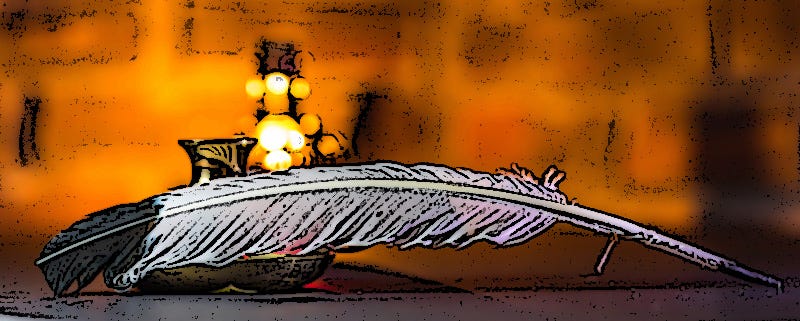
In the months that followed, Otto the Great became noticeably ill.
He longed for Saxony, where he spent his childhood. The imperial family had not been home for 5 years, so in April they returned to the palace where, 37 years prior, his father (Duke of Saxony) passed away.
Otto I died of fever on May 7, 973, surrounded by the people and animals he loved.
That night, in their chambers, Theophanu suggested Otto II write a letter.
She said that surely, though his father was gone, his lessons could live on. Regardless of how Otto II felt about how they were given, they were gifts. Perhaps his grief would ease if he considered what he learned and thanked the emperor.
Otto II wept. He told Theophanu about the patch of borage in Verona. He showed her the game his father played with him when there were monsters under his bed.
He fell asleep while writing the letter, grateful and safe.
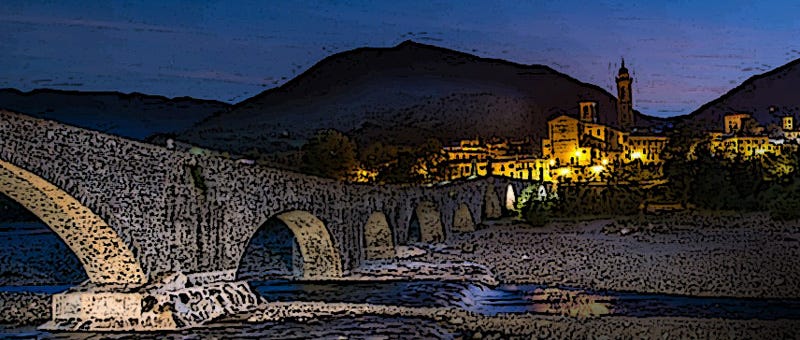
Otto II was confirmed sole emperor of the Holy Roman Empire by the Pope, at age 17, with no formal opposition whatsoever. His first order of business was to face Lothair.
Gerbert was teaching in Reims when he received news of the emperor’s death.
By order of Otto II, he was appointed Abbot of Bobbio and count of the surrounding district in Lombardy. He was to set teaching aside and depart for Pavia.
Next: Can courage be faked? The misplacing of confidence.



